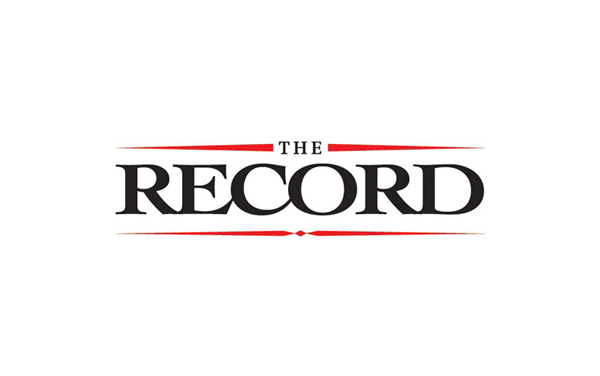By Michael Boriero – Local Journalism Initiative
IRIS Estrie, an organization in the Eastern Townships that provides prevention services for sexually transmitted and blood borne infections (STBBIs), HIV, and hepatitis, has reopened its doors after shutting down last week to re-evaluate its financial situation.
Last November, IRIS Estrie Director Charlène Aubé told The Record that the organization would be facing significant challenges come March should they be unable to obtain a fresh round of financial aid from the federal and provincial government. The future is uncertain, she said.
“We finished the year at the end of March and we knew at that point that we didn’t have any confirmation of new financing programs, so we had to reflect on which of our services we needed to cut first because realistically we can’t do everything,” Aubé explained on Monday.
IRIS Estrie launched a financial aid campaign last week. However, the organization was also forced to terminate its SuPAIR Aidant component, and 14 STBBI prevention seminars in high schools throughout the region. Aubé has called on the CIUSSS de l’Estrie – CHUS for help.
“This is something that we’ve been doing for a long time and now we need to cross it out because right now I don’t have the personnel to run the program and I don’t have financing that is meant for this program, either,” she said, referring to the STBBI prevention seminars.
According to Aubé, the bedrock of the organization’s financial structure was supported by a recurring federal subsidy. However, it wasn’t renewed this year. Although IRIS Estrie also receives financial support from Quebec, it isn’t nearly enough to keep it afloat, she said.
The reality is the organization won’t be able to hire new interveners with the current funds coming in, Aubé continued, adding that at this point, she can’t guarantee that every intervener on staff right now will be paid a full year’s worth of salary. It could also lead to personnel cuts.
“Presently, I have five people working full time, and I have two part-time interveners that are there for health prevention. I would say that in six months time, if we don’t have confirmation for more financial aid, then I’ll have to cut at least two or three interveners,” said Aubé.
The organization provided 3,900 interventions last year. IRIS Estrie is the last social line for many people, Aubé told The Record, sharing that the clientele they serve typically face discrimination, stigmatization and homelessness. But the organization is a safe haven.
“It doesn’t matter what state they’re in, there will always be someone here to help them. These people don’t find help in the health network. They’re people that don’t have a lot of confidence in others, but they do trust us, and there will be a major hole in services without us,” she said.
With a precarious financial situation threatening to unravel a 34-year-old essential health organization, Aubé has called on the population for donations. She has also invited Quebecers to check out the IRIS Estrie Facebook page to learn more about the GoFundMe fundraiser.
The “Riez-vous de nous? Financez IRIS Estrie!” awareness campaign launched at the end of April is also an important tool for residents who want to help, Aubé shared. A detailed explanation of how to participate in the campaign can be found on its Facebook page.
Aubé told The Record that IRIS Estrie has asked willing residents to copy and paste a pre-written message, calling out the lack of funding opportunities, as well as detailing what will happen should the organization shut down, and email it to various political and health leaders.
All of the necessary information, such as the emails of each of the concerned parties is posted on Facebook. Aubé added that the organization isn’t close to a permanent closure just yet. They’re going to do everything in their power to keep the doors open to the public.
However, if they’re unable to secure a new round of federal funding, and the staff eventually dwindles down to only one intervener, she’ll be forced to consider shutting down for good. This is also happening to other organizations, she noted. It’s the nature of the funding game.
“There isn’t a lot of money for community organizations, so when they call for projects, well, it creates a lot of competition between community organizations because everyone is in the same boat. We’re not an isolated case, it’s just that we’re at our lowest right now,” said Aubé.






